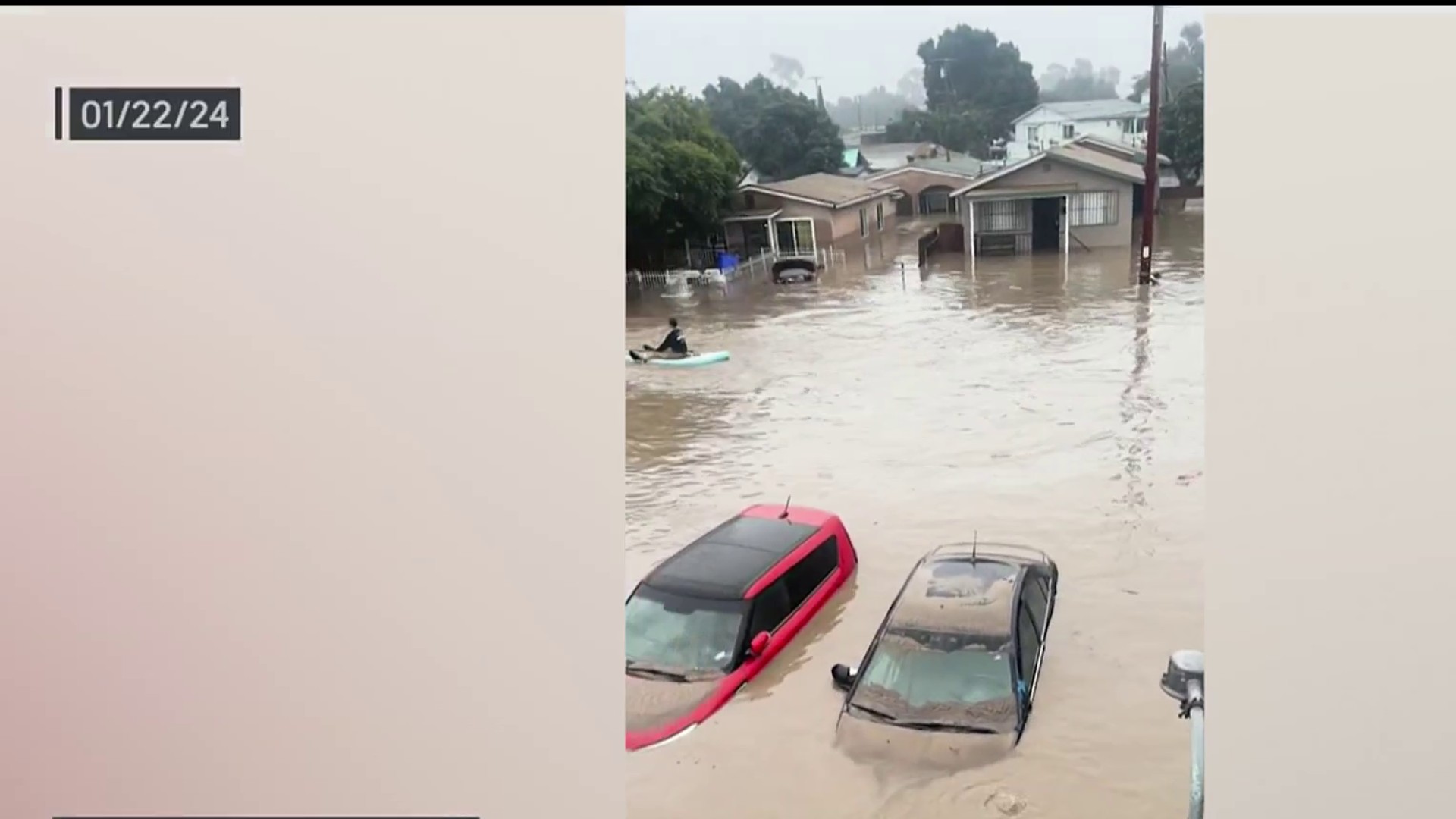It's been one month since historic flooding damaged nearly 800 homes in San Diego County, including Bienvenida Ford’s house, which she lived in for more than 30 years in the Southcrest neighborhood.
“I work so hard all my life,” Bienvenida told NBC 7. “I save every penny. "All of a sudden, it’s gone.”
NBC 7 first met Bienvenida on Jan. 26, only a few days after the flooding destroyed her one-story home. That day, her grandson Marquis Ford and son-in-law Stan Kimbrough, who came in from Texas, were helping to clean everything up.
San Diego's Historic Flooding, One Month Later
Get top local stories in San Diego delivered to you every morning. Sign up for NBC San Diego's News Headlines newsletter.
“When I got to the house, I mean, it was completely destroyed,” Marquis said, as he described the moment he pulled up to see the property post-flooding. "There was mud everywhere."
Bienvenida, who is now 86 years old, said she wanted the house be the last place called home. It's also where Marquis grew up.
“I lived here for 31 years,” Ford said. “I loved this place.”
“I used to ride my bike up and down this street, you know," Marquis said. "I learned how to ride a bike here. I learned how to dribble a basketball here,"
Bienvenida was at home when it all happened. She said it was so fast that, before she knew it, she was standing in waist-deep water and police officers had to help her and her daughter escape.
“My daughter said, ‘Mommy, Mommy, come on, let’s go,’ [and] I’m thinking, ‘Where [am] I going?' ” Bienvenida said.
Looking back, she told NBC 7, the past month has been long and emotional. She often finds herself thinking about all of the items she lost, including the pots and pans she would use to cook her signature dish, lumpia; her record albums; a grandfather clock; and blankets that she would make by hand for each of the babies born in her family, including one that was about to be delivered.
“The baby blanket for my grandson — he’s going to be born in April, so I made some crochet," Bienvenida said. "It’s already finished, ready to wrap it – gone. Gone. Now I am going to start all over again.”
Bienvenida is temporarily staying with one of her granddaughters, but, Bienvenida said, she's been looking for a new place to move to. It is especially difficult since she's on a fixed income and had been paying $880 a month for rent.
“I cannot find a place, I cannot find a place, I cannot find a place,” Bienvenida said. “You know, the rent is too expensive.”
Marquis said it has been a process.
“Deep down inside, I know she wants to break down, but she’s trying to keep all of us together because we keep her together,” Marquis said. “For myself, I’ve processed it already, you know? It’s a loss for my grandmother. I feel like it hasn’t really fully clicked in for her yet.”
Marquis mentioned that they grew up referring to Chollas Creek as “the ditch” and only became concerned about it in the past few years.
“I’ve seen, like, rainy seasons where you think, ‘Oh, you know, it might get filled up,’ " Marquis said. "It’s always been fine regardless of how bad it looks, but as of late we have been looking at it like, you know, kind of worried."
Marquis added that he's glad to see the creek was dredged but that the damage had already been done. He also said that, while the resources meant to help are better than nothing, the priority should be finding permanent and safe housing for those who were impacted.
“Housing is the biggest thing, you know?" Marquis said. "A lot of people were in situations that were good for them, and now they lost out on those situations, and now you have to step into a world where, you know, they don’t care.”
For Bienvenida, she’s scared to ever be in the same position again.
“I promise myself now — I say, 'I think I don’t want to buy nothing. I don’t want no more,” Bienvenida said. “My money go in the water.”



